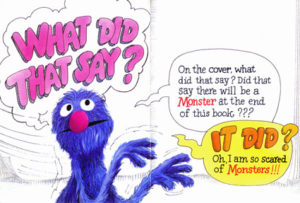Storytelling, Writing, Writing Advice
Happy Endings
As difficult as it is to begin a book, it may be even more challenging to end one, at least in a satisfying fashion. Not all “good” endings are happy ones, and indeed, if you force a happily-ever-after onto a story that didn’t earn it, the ending is unlikely to leave readers feeling satisfied. Here are some elements to consider when crafting your perfect ending:

1. Has the central tension been resolved? If so, get off the stage as soon as possible. In a mystery, this is usually the point where the villain is revealed. In a romance, this is when the characters get together and admit their love. In a literary novel, the ending can be tougher to spot, but it’s usually when the main character has learned whatever insight they were lacking at the start of the book.
2. Make sure your ending is earned. The rest of the story should be leading to the final point so that when the ending arrives, it seems just. My family watches baking competition shows where someone is eliminated at the end of each hour until finally a champion is crowned. At the start, especially, there are so many bakers that the producers would have hours more footage than they could use. They have to choose which parts to include in the “story.” We joke that so-and-so is getting the “going home” edit, but there is truth in this line. At the end, when a baker is voted off, viewers have to understand why this person is getting the axe. If the producers didn’t show you their struggles and instead focused on a different baker’s lovely meringue technique, you’d be confused when the final vote came in. It’s the same with a book. Your story needs to relate to the ending in a way that makes sense.
3. Don’t tell all you know. It’s a good idea to leave some mystery at the end of your book, even if it’s not a mystery. It can be tempting to wrap everything up in a bow. Have your side characters fall in insta-love. Move your hero into a James-Bond-type pad. Have your heroine’s mother call her up and apologize for all those mistakes from years ago. Maybe the killer is caught but there is a lingering question of whether the dead man’s wife knew him long ago and may have arranged for the murder. Or the couple gets together but her best friend, who pined for the man herself, remains unsettled. Or your hero, who’d believed that money could buy happiness, realizes his error but it may be too late to save his relationship with his son. Readers like endings that make sense, but they also value some open questions. It gives them something to think about when the book is done—and makes for lively book club discussions!
4. Think about your last line. Writers can spend ages tinkering with the opening sentence of a book because it’s your first impression. A killer first line can help sell a novel. Similarly, your last line is also important. It’s your parting shot. Your lasting impression, as it were. If you’re lucky, it can help sell readers on your next story.







